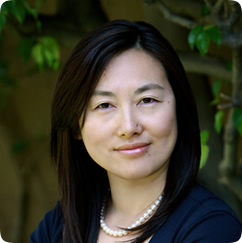
A widow needs an advisor with a process for keeping her safe while she takes the time to heal. And she needs that person as soon as possible.
There is a well-known fact in the financial services industry: about 70% of widows seek out new financial advisors after their husbands’ death. The underlying reason is not because widows do not know how to work with professional advisors effectively, but rather because they don’t feel heard and understood by them.
Widows are often perceived as little old ladies who have never managed anything but their households. But the reality is that the average widow in the U.S. is 56-years-old and has a college degree; she’s worked outside the home, perhaps earning more than her husband; and she has at least managed the household finances. These are generally capable women experiencing a very stressful and confusing life transition, and as a result, their normally high capacity to function is temporarily diminished.
Widows are usually both aware of their limited capabilities and frightened by them. They don’t want to make a mistake and have no idea when their normal coping skills will permanently return, so they feel vulnerable and often paralyzed.
At the same time, they’re getting advice from all directions. Sometimes it’s good advice devoid of sensitivity and/or delivered at the wrong time. Sometimes it’s self-serving advice calculated to strike at their weakest moment. This all feels overwhelming and tough to sort through – like high-volume noise they just want to silence.
When many new widows begin to process what has happened to their lives, they are faced with two major issues: the grief over their loss, and the new financial situation that has been thrust upon them. Both of these issues are so powerful and even overwhelming that widows want to be assured there is a way to bring order to their chaos – sound steps to follow guided by someone who knows the way.
Widows want people who “get” them – who understand their meaning even when they can’t get the right words out, who give them plenty of time working through their grieving process, who don’t pressure them to act before they feel ready and who set generous and movable timelines for making decisions.
The early stage of grief is when some of the most self-destructive decisions and commitments can be made. Rather than waiting until things settle down, the widow needs an advisor with a process for keeping her safe while she takes time to heal. And she needs that person as soon as possible.
The process begins by identifying what’s urgent and separating it out from competing thoughts and fears. Only after the advisor helps the client identify her immediate needs and makes her feel secure and safe should any further recommendations be made. Those recommendations should be delivered in a way that helps the widow gain the clarity she needs to make confident decisions.
SILVER OAK’S BEST PRACTICES TO WORK WITH WIDOWS
- We listen with empathy, beyond normal active listening. We listen to and respond to widows’ answers and then ask the next logical questions.
- We have a unique discovery process to determine the pace, comfort level for addressing decisions and personal communication preferences.
- We provide our widow clients with guidance on managing expectations of family and outside influencers. We will also accompany them with some activities that may be overwhelming, such as calling insurance companies, or going to the estate attorney’s office.
- We realize when a widow is in the early stage of grief, this may be an intense, almost immobilizing time for her. We will let her know that most things can wait until she is ready, but there may be some that need more immediate attention. Our “Decision-Free-Zone” tool is essential to accomplish this.
- We are available to talk about much more than investing. There may be questions about whether she needs to continue to stay in the same house, or to move somewhere else; whether she needs to work or can take a leave of absence, or even retire. These are big questions that will not necessarily have immediate answers, but we can play a very critical role as their new thinking partners.
- We recognize that when women face life-changing transitions, they cope better in a safe and collaborative environment. Through our ongoing Women’s Circle gatherings and individual meetings we help them develop a higher level of resilience and confidence and an understanding of how to deal effectively with these changes.
- We believe the best timing for discussing what to do and expect when a spouse passes away is when both spouses are still present and able to participate. It is emotionally difficult to initiate a conversation like this but it is in clients’ best interest to plan ahead, especially for women who are more likely to be the surviving spouse.
At Silver Oak, we are trained in the brain sciences behind life transitions, with tools and processes to guide someone through one of the most difficult life passages. We have earned certification as Certified Financial Transitionist ™ (CFT™) through Sudden Money® Institute. Widows tell us that they want to share our name and some of what they learned from us with every other widow they meet. We are here to help you and others you know with life’s financial transitions. To help widows get started, we’d like to offer a complimentary copy of “Survivor’s Checklist” – a useful tool for widows at the very beginning of the journey, provided by Sudden Money® Institute.
*Some content of this article is adapted from Susan Bradley, CFP® CFT™, Founder of the Sudden Money® Institute.

Linda Cao, CFP®, is Wealth Advisor at Silver Oak. She specializes in working with women-in-transition and retirement planning.
